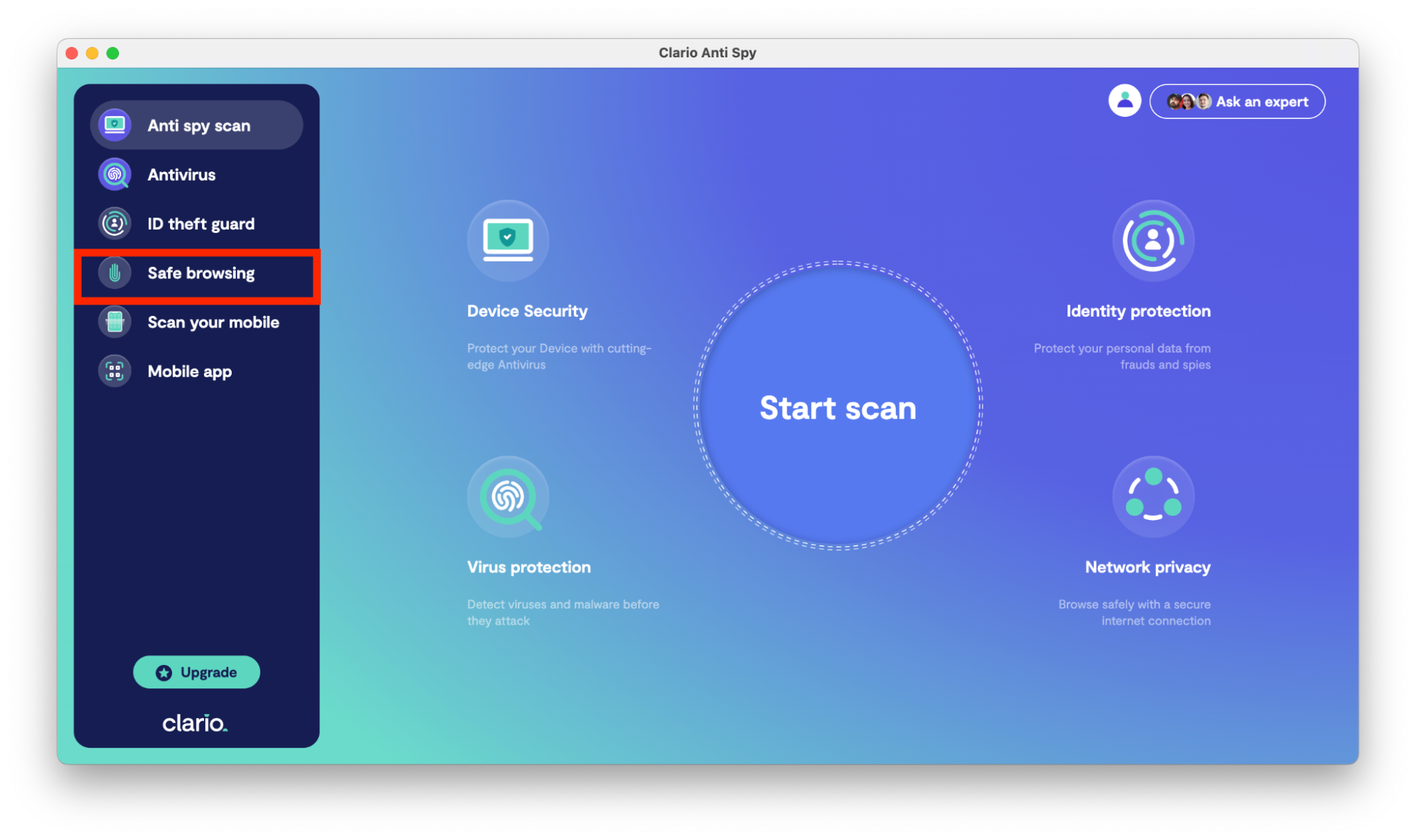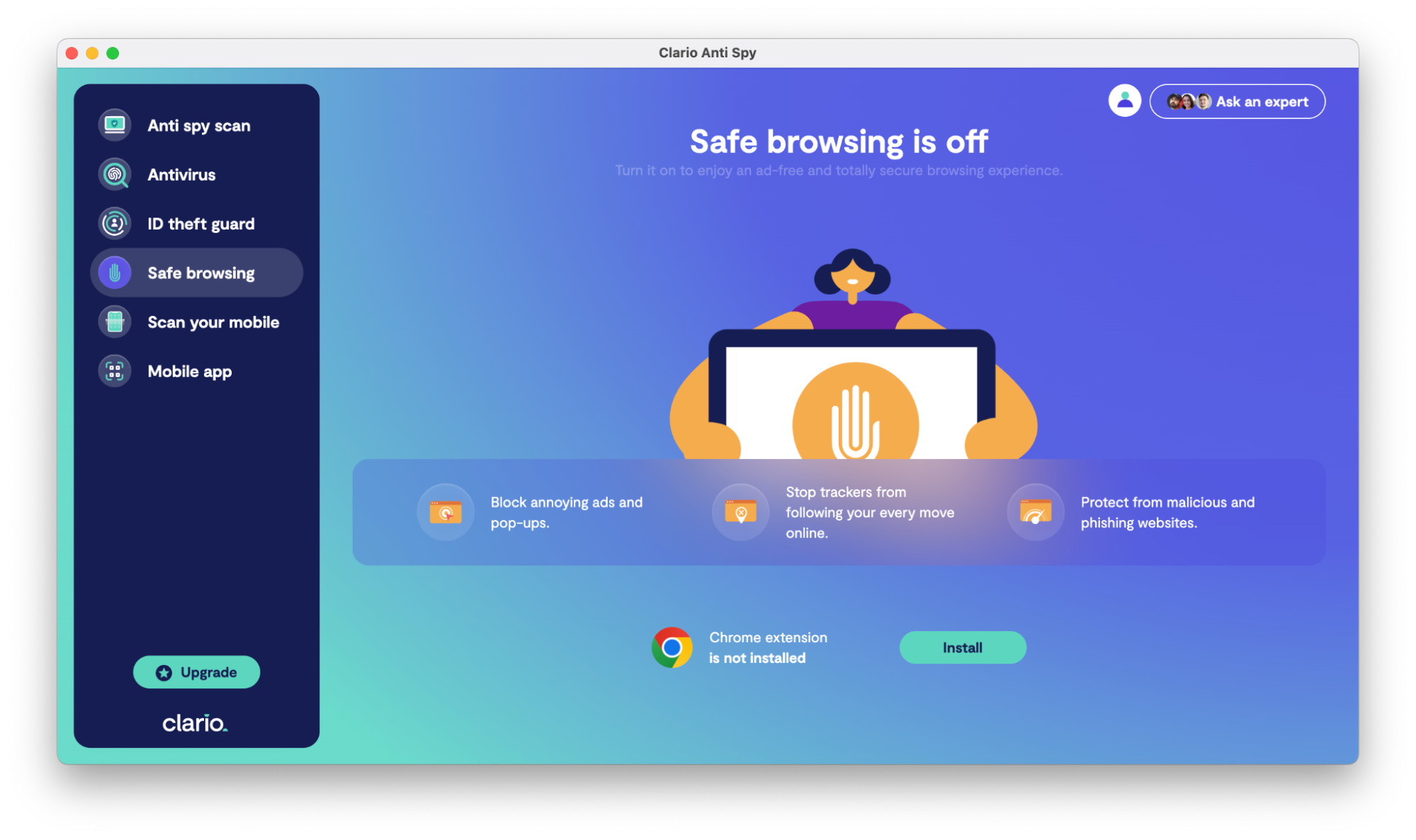Table of contents
- How do you know if the government is watching you
- How is the government monitoring you
- Data collection and AI
- What does the government know about you
- Why is the government watching you
- How to prevent and stop the government from spying on you
- 1. Update your devices
- 2. Encrypt your communication
- 3. Use a VPN
- 4. Avoid free and shady apps
- 5. Cover your webcam
- 6. Clean up your social media accounts
- 7. Read the privacy policy of apps
- 8. Don't open suspicious emails
- Conclusion
How do you know if the government is watching you
Governments aim to keep their surveillance programs covert—so it’s not always easy to tell if someone is watching you. Still, if you’re wondering: Who is tracking me?—there are some telltale signs that help you determine if the government or others are watching you.
Here’s how to know if the government is watching you:
- Device issues: Spying often exploits device vulnerabilities. So, if your battery or data is draining quicker than usual or you’re experiencing other unusual technical issues, it could be a sign that someone is accessing your devices.
- Login issues: Spies often try to gain unauthorized access to your online profiles and accounts because they contain a trove of personal information. Look out for failed login attempts or logins from unfamiliar devices or locations.
- Phone issues: If you are experiencing strange noises or echoes while making phone calls, it’s possible that someone is listening in on your calls.
- Physical contact: Noticing unmarked vehicles or individuals around your home or places you frequent? Governments may supplement digital surveillance by sending in feds to watch you.
Don’t jump to conclusions just yet. Unless the government has a good reason—like a possible national security threat—they are probably not watching you. Instead, governments are more likely to use indirect ways to keep watch on you—and the rest of the population. Below, we reveal how the government is monitoring you.
How is the government monitoring you
Rather than individualized surveillance, the government is more likely watching by collecting your metadata, the seemingly insignificant bits of data found in your emails, photos, calls, and web activity. Individual pieces of metadata won't reveal much, but by collecting large amounts, the government can form vivid profiles on citizens.
Although the FBI or CIA are not watching your every move, collecting small fragments of digital information can get a fairly accurate picture of you and your activities.
Data collection and AI
Collecting and deciphering vast amounts of metadata can be inefficient and tedious—but governments are employing AI to help. Through AI scraping, governments can use artificial intelligence to analyze huge amounts of metadata and publicly available social media information. Read on and learn what the government can infer about you from this data.
What does the government know about you
The government is spying on you through metadata collection programs—but so is everyone else. Though insignificant on its own, large amounts of metadata can actually reveal a lot about your activities, social interaction, and behavior.
Here’s what the government can know about you:
- Location: Metadata from your devices can reveal your physical location and movements. This data can be used to track your daily routines, movements, and maybe even your current location.
Hide your location
For this sole reason—hiding your device’s location—Clario AntiSpy has developed its Virtual Location feature. Download Clario AntiSpy now to pinpoint your device’s location anywhere in the world.
- Communication habits: Metadata from texts, emails, and phone calls can provide information about who you contact, how frequently, and for how long.
- Web browsing habits: Metadata from web activities can reveal what websites you visit, the time spent on certain sites, and what links you click, as well as a general portrait of your browsing habits.
- Social media activity: Metadata from social media can track who you follow, friend, and message. Also, what you like, comment, post, and share. All this data paints a clear picture of your social connections, activities, and opinions.
- Financial transactions: Metadata from financial transactions from card purchases and withdrawals can reveal your spending habits, what financial institutions you use, and your purchasing preferences.
- Health and fitness: Metadata from health and fitness apps may reveal data about your fitness level, sleep patterns, and exercise routines.
Why is the government watching you
Though the government is watching you, it’s probably not as bad as that sounds—unless you’re doing something criminal. Mainly, the government doesn't target specific individuals. Government surveillance programs are usually in place to protect citizens, but there have been instances where governments have overstepped their authority.
Government surveillance programs can protect national security interests and ensure public safety by monitoring potential threats from terrorists, criminals, or other adversaries. These programs can also be used by law enforcement agencies to investigate and fight crimes—while also used to gather intelligence.
With that said, infamous whistleblowers like Edward Snowden have exposed government agencies like the NSA, CIA, and FBI of conducting covert surveillance programs that have violated citizens' online privacy. The leaked intelligence reports revealed that the government egregiously collected and analyzed sensitive data and remotely activated cameras and microphones.
There are more instances of governmental interference with online privacy—but you shouldn’t be too worried. Though it is important to stay informed of privacy rights violations, you should also appreciate that the government (for the most part) is not interested in targeting innocent individuals.
How to prevent and stop the government from spying on you
If you have concerns about protecting your privacy from the government or others, you can take action to limit spying. Here are some ways to prevent and stop the government from spying on you:
- Update your devices
- Encrypt your communication
- Use a VPN
- Avoid free and shady apps
- Cover your webcam
- Clean up your social media accounts
- Read the privacy policy of apps
- Don't open suspicious emails
1. Update your devices
Updating your devices introduces security patches that address known device vulnerabilities. If you don’t regularly update your devices, governments and other snoops can exploit vulnerabilities to gain unauthorized access to your devices and spy on you.
2. Encrypt your communication
The government can easily intercept unencrypted online communication, your internet service provider, and others. Ensure there’s an encryption feature when using messaging, email, or other communication services. And be sure the websites you visit—especially when sharing data—have an up-to-date SSL certificate.
3. Use a VPN
A VPN will hide your IP address and encrypt your internet traffic, making it difficult for others to monitor or intercept your online activity. They are especially useful on public Wi-Fi hotspots. For reliable protection, be sure to use a quality, vetted VPN option. Free or unverified VPNs can have weak security protection, slow speeds, and (ironically) spy on you.
4. Avoid free and shady apps
Free and suspicious apps may appeal to you with gimmicky marketing or impossible promises—don’t be tempted. These apps often have questionable privacy policies and may leave your data vulnerable for others to scoop up. Use apps from your device provider’s app store or trusted and reviewed apps.
5. Cover your webcam
Can hackers see through your phone camera? According to whistleblower accounts, there have been instances where governments remotely accessed and activated webcams. Though rare, this feat requires exploiting vulnerabilities in your device's software or operating system. The most direct approach to staying safe is to block your webcam lens with a piece of tape or something else.
6. Clean up your social media accounts
If you overshare on Facebook and other social media, the government might not need any fancy trickery to gain access to your devices. Since it’s public, the government can and will sift through social media data. So think before you post—also, go back and delete older posts that reveal any personal information that can be used against you.
7. Read the privacy policy of apps
The apps you use may have questionable policies that compromise your privacy. Yes, it’s boring, but reading the privacy policy of your favorite apps will help you confirm whether or not your data is safe from the government, big business, and other pests.
8. Don't open suspicious emails
Emails are a known attack vector for hackers and other spies. Suspicious emails may feature compelling subject lines to entice victims to click them—don’t! You should avoid downloading attachments or clicking links that lead to outside web pages. You may get hit with malware or phishing attacks or unwittingly provide attackers with personal data.
Spies try their hardest to avoid detection—and they can slip by even the most vigilant users. Clario AntiSpy contains various tools specially designed to detect and stop all sorts of spies and trackers. The Safe Browsing feature will block annoying ads and data collectors from tracking your online activity and getting to your personal data.
Here’s how to use Clario’s AntiSpy safe browsing feature:
- Download Clario AntiSpy and get a subscription to create an account
- Click Safe browsing on the left-side menu

3. Install and enable the web extension (available for Chrome and Safari)

4. Enjoy the four pillars of Safe browsing: anti-tracking, anti-malware, ad blocker, and web security feature that will notify you if a link you are trying to access is malicious.
Conclusion
Though the government indirectly watches citizens through metadata collection, you are safe from any personal scrutiny. And although the idea of mass surveillance through metadata collection is creepy, there may be benefits in the interest of national security. Protect yourself from the other spies lurking on the internet with Clario AntiSpy.
Our comprehensive anti-spying tool contains a data breach monitor to stop spies in real time, plus a safe-browsing feature to stop data collectors from digging into your online activity. On top of that, an anti-spy scan will quickly analyze your device for all kinds of spying threats. Clario AntiSpy is your one-stop shop against a whole gamut of online snoops.


